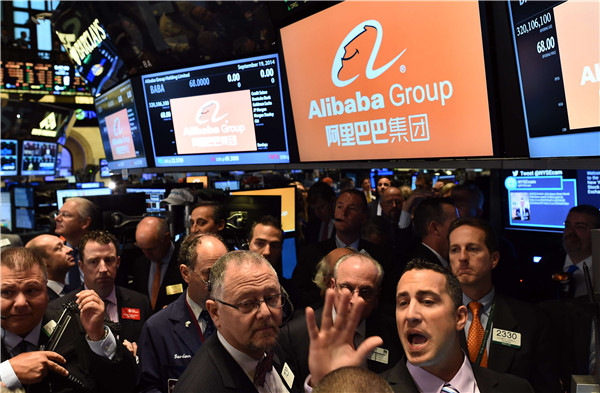Alibaba steps up fight on counterfeit luxury goods

Taobao tells vendors that they must offer proof of authenticity for luxury goods
Alibaba Group Holding Ltd's online marketplace Taobao is stepping up its effort to crack down on counterfeit luxury products by requiring sellers to submit proof of authenticity as the Chinese e-commerce giant improves its image on its journey of globalization.
Taobao, China's largest customer-to-customer platform, has informed its online vendors that they must upload proof of the authenticity of luxury goods, such as invoices or authorization letters from the luxury brands from May 20 for examination. Those who fail to pass the examination cannot list the products online or may even get their funds frozen by the platform.
"The goal of the new rule is to create a healthy and trustworthy shopping environment and protect the legal right of consumers and brand owners," Taobao said in an online notice to its millions of vendors in early May.
The tighter control on sales of luxury goods on Taobao is Alibaba Group's latest move in cracking down counterfeit products.
Alibaba Group, now the world's largest retailer in terms of the annual transactions made on its online platforms, is seen as a haven for knockoff goods. Many Western brands have accused the e-commerce giant of not doing enough to tackle counterfeit products.
In 2015, Gucci, Yves Saint Laurent and other brands owned by Paris-based Kering SA filed a suit in New York against Alibaba, seeking damages and an injunction for alleged violations of trademark and racketeering laws.
Searching keywords "Gucci Purse" on Taobao on Wednesday, more than 100 pages, each filled with 48 items, can be found on the site. The prices for the products ranged from 850 yuan ($130) to about 35,000 yuan.
With the tightening control over the sales of luxury goods kicking off next week, a significant number of vendors who sell fakes are expected to be blocked from Taobao's site.
Lu Zhenwang, an independent internet expert and the chief executive officer of the Shanghai-based Wanqing Consultancy, said that the new rule will be effective in cracking down on fake luxury goods.
"Luxury goods, which are usually big-ticket items, are one of the major targets for copycats in China. The Chinese government has made cracking down on fake goods on e-commerce platforms one of the top priorities and the Western luxury brands have also called for Alibaba to take action," he said, adding that pressure from both inside and outside the country has made the e-commerce giant to step up effort in the crackdown on fake goods.
Alibaba in April became one of the first e-commerce firms to join the International AntiCounterfeiting Coalition, the world's largest non-profit organization dedicated to fighting product counterfeiting and piracy.
-
Previous:
-
Next:






